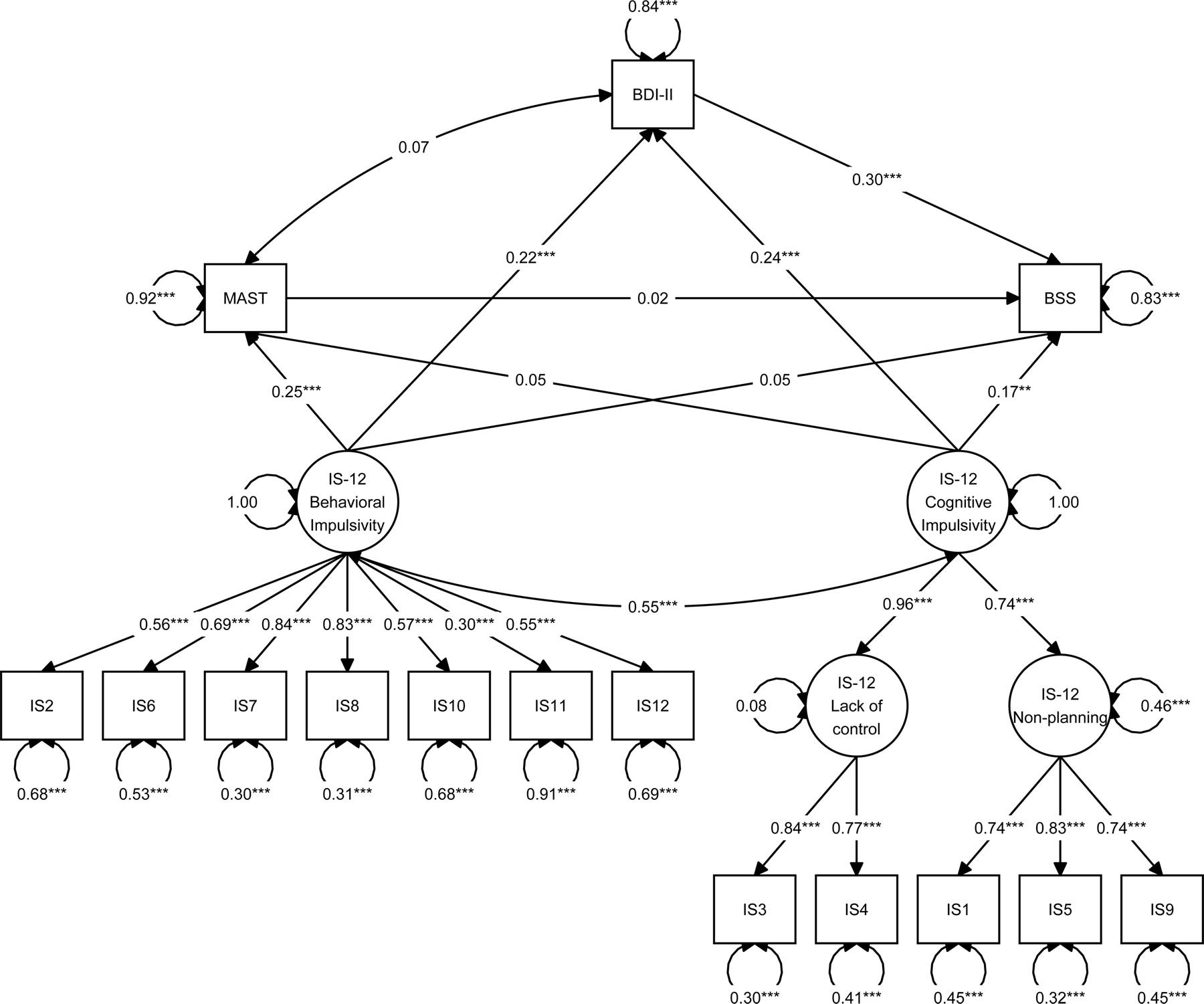Impulsivity Scale-12 and its utilization in alcohol use disorder
Abstract:
Introduction: One of the core symptoms of alcohol use disorder (AUD) is impulsivity. The recently published study on the Impulsivity Scale 12 (IS-12) offers a promising tool to use in clinics working with clients with AUD due to its simplicity. IS-12 includes subscales related to cognitive impulsivity and behavioral impulsivity, which are related to different aspects of AUD symptomatology. The aim of the study was to adapt IS-12 to polish and test its utility in a sample of patients diagnosed with AUD.
Methods: Using a Confirmatory Factor Analysis, we compared the two-factor model of the Polish adaptation of the BIS-11 and the IS-12 on a sample of 615 patients diagnosed with AUD. Additionally, we explored the association between the IS-12’s cognitive impulsivity and behavioral impulsivity subscales and depressive symptoms, AUD severity, and suicidal ideation using Structural Equation Modeling on a subsample of 450 patients with AUD.
Results: The IS-12 demonstrated a better model fit and good reliability compared to the BIS-11. Moreover, cognitive impulsivity predicted suicidal ideation, but not AUD severity, while behavioral impulsivity predicted AUD severity, but not suicidal ideation. Both subscales of IS-12 predicted depressive symptoms.
Conclusion: Consistent with prior work, findings indicate that the second-order factor model of the BIS-11 had reliability issues and evidenced poor model fit. In contrast, the IS-12 demonstrated a satisfactory model fit and was predictive of clinical symptomatology. Thus, utilizing an easy tool, such as IS-12, might be beneficial for researchers and clinicians working with patients with AUD.

